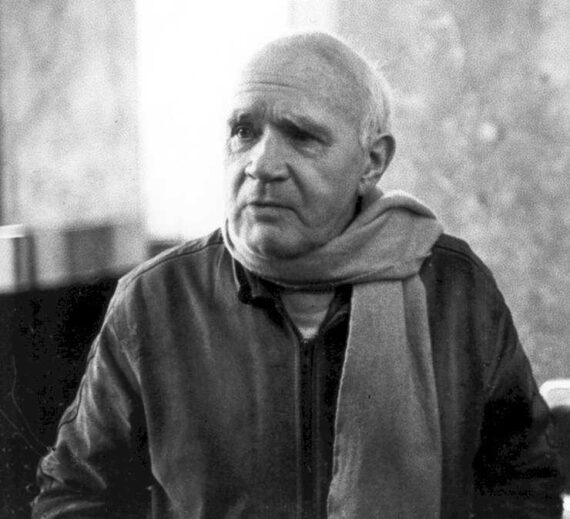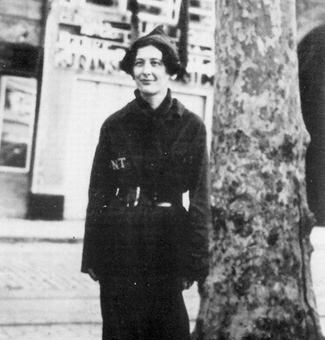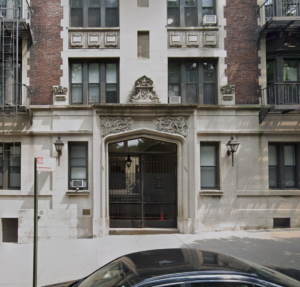In an essay on Genet published in Grand Street, Edward Said tells the story of leaving Hamilton Hall to see Genet speak (on the steps of the Low Library) at a rally for the Black Panthers in the spring of 1970, with the university having yet to recover from the student protests of 1968. Said noted about Columbia that at that time “its administration was feeling uncertain, its faculty were badly divided, its students were perpetually exercised both in and out of the classroom.” At the Panther rally, Said observed a great difference between “the declarative simplicity of Genet’s French remarks” and “the immensely baroque embellishment of them by my erstwhile student.” [Continue reading…]
Simone Weil
In his brilliant book, Simone Weil’s Political Philosophy: Field Notes from the Margins (2023), Benjamin Davis reads Simone Weil as an important political philosopher. Weil was one of the first thinkers of European descent to call into question her own country’s colonial practices. Clearly, many intellectuals have done the same, however, they do not acknowledge that Weil was the first to do so. For interrogating her culture and society on those anti-colonial grounds, many dismissed her as crazy. Many also dismissed her by focusing on her strange practices of eating and dressing. Ben shows that, if we focus on reading Weil, for the depth of her thinking—that is, if we read Weil as a political philosopher—then we can get a sense of the insights that she offers us. Those insights include: (1) a concern that Western societies have raised their nations to the level of Gods as objects of worship; (2) a method that involves living with workers and those marginalized and exiled if we are truly to understand the modern categories we live under, such as citizen, democracy, fascism, revolution, and exile; and (3) an adamant belief that philosophy should be understood as a way of life, as something that we practice in how we dress, eat, write, speak, and treat one another. [Continue reading here…]
The philosophical method that Simone Weil pioneered—constantly confronting critique and praxis—can serve as a model, an exemplar, what we might call her “immersive philosophical praxis.” Troubled by the living conditions of factory workers, Weil requested a leave of absence from teaching and went to work as a factory worker at three different factories in Paris, including a Renault plant, for almost six months in 1934-1935. From that experience, Weil observed first hand how cooperation could infuse the modern factory. Reading Simone Weil’s “Factory Journal” brought back to mind my own experience in the factory. I have never written about or spoken about these memories publicly; but reading Weil’s journal from her time working in the Alsthom and Renault factories in 1934-35 reminded me of the time that I spent working in a graphite factory in Chedde, France during the summer of 1981. I had gone there expecting to have a political experience, but I came away from it as a human experience [continue reading here…].
If we are return to Simone Weil to consider war, genocide, and siege, we might find a philosopher who asks us first to consider our own limitations and finitude as humans, who asks us to recognize how easily we can be swayed by nationalist thinking as well as by any use of power we think we can control. For Weil, the only just response to power is the refusal to use it. It is a negative use, a task that asks us not “to let right alone” but “to let force alone.” Simone Weil offers us a critical, political, educational, and legal task so striking in its strangeness, so foreign to history, that it would perhaps take divine inspiration to be carried out. Or at least, as she would write in her essay “Forms of the Implicit Love of God,” again returning to Thucydides in April 1942, to use asymmetrical force is to foreclose a relationship not just with others but also with the ethically and theologically charged world around us [continue to read here…]
As Benjamin Davis discusses in his book, Simone Weil escaped to New York City in July 1942 from Marseilles, France, and lived in an apartment at 549 Riverside Drive in Morningside Heights. She traveled with her parents on the Portuguese ship Serpa Pinto, passing through Morocco and Bermuda, before docking in New York on July 7, 1942 (the boat manifest is here). The Serpa Pinto transported many refugees fleeing the Holocaust during the early 1940s. Simone Weil would live at 549 Riverside Drive until November 10, 1942, when she set sail to London to join General de Gaulle’s Free French army. During her time in Morningside Heights, Weil took part in a first-aid course in Harlem, hoping to return to Europe as a frontline nurse, and spent time in New York’s public libraries […]
As evidenced by her time working in factories and fighting on the Spanish front, Simone Weil dedicated herself to thinking and acting on questions of cooperation and collectivity. In her work The Need for Roots: Prelude to a Declaration of Duties towards Mankind, Weil in fact meditated on the cooperative form, proposing that working conditions should be radically transformed to allow for work to be organized either at home or “in small workshops, which could very often be organized on a cooperative basis.” In this seminar, we will explore what resources and tools, both theoretical and practical, Weil offers to approach cooperation more productively How does her philosophy and the way she led her life help forge a path toward coöperism? To help address these questions, we are privileged to welcome two brilliant critical thinkers, both experts on Simone Weil’s political philosophy. Benjamin Davis, who joins us from Saint Louis University, is the author most recently of Simone Weil’s Political Philosophy: Field Notes from the Margins, just published this year at Rowman & Littlefield. Frieda Ekotto is the Lorna Goodison Collegiate Professor of Afroamerican and African Studies, Comparative Literature and Francophone Studies at the University of Michigan. A philosopher and intellectual historian, she is the author of several books, including Race and Sex across the French Atlantic (2011) and L’Ecriture carcérale et le discours juridique: Jean Genet (2001), and the current President of the Modern Languages Association (2023-2024). Welcome to Coöperism 7/13!






